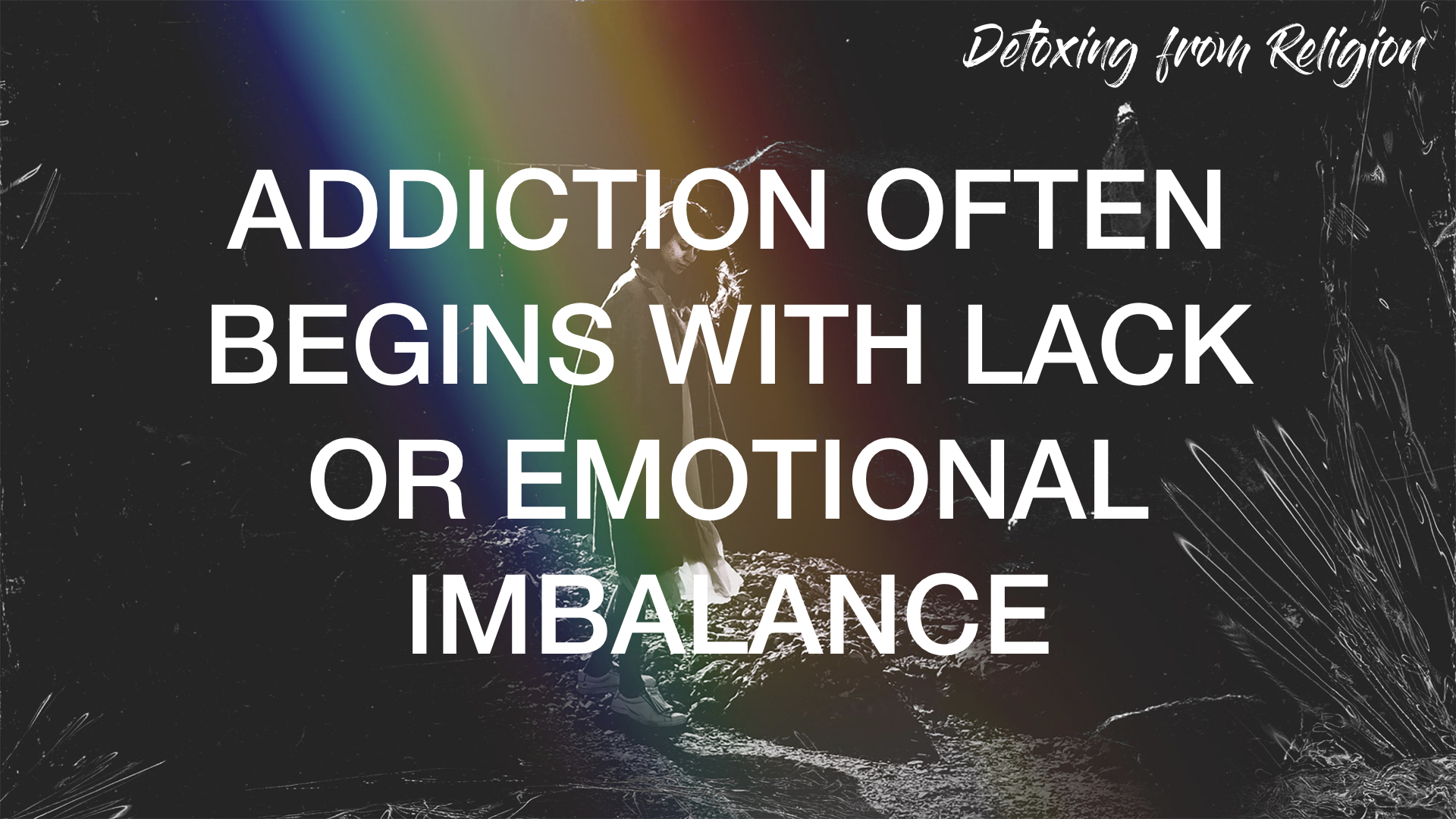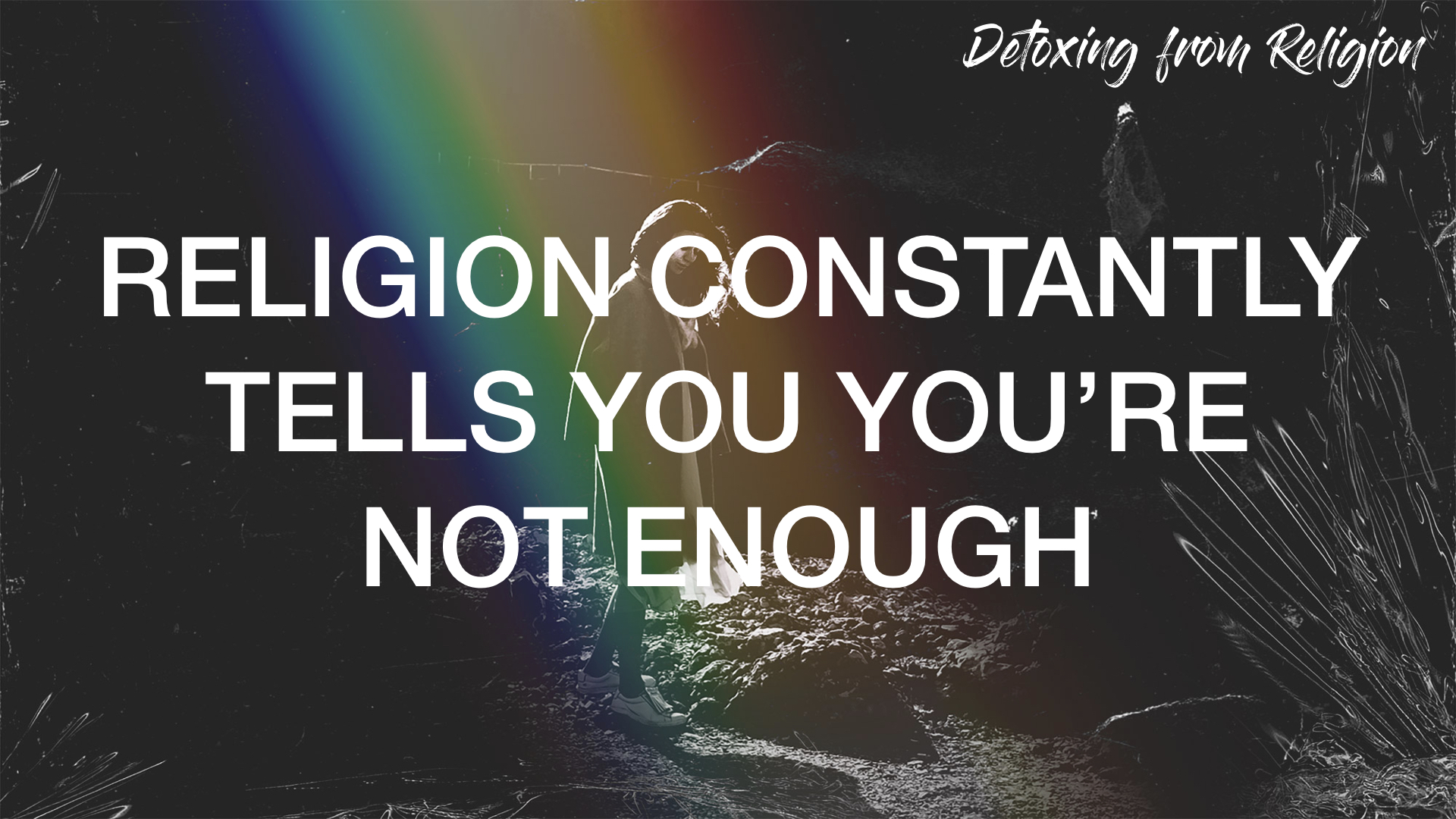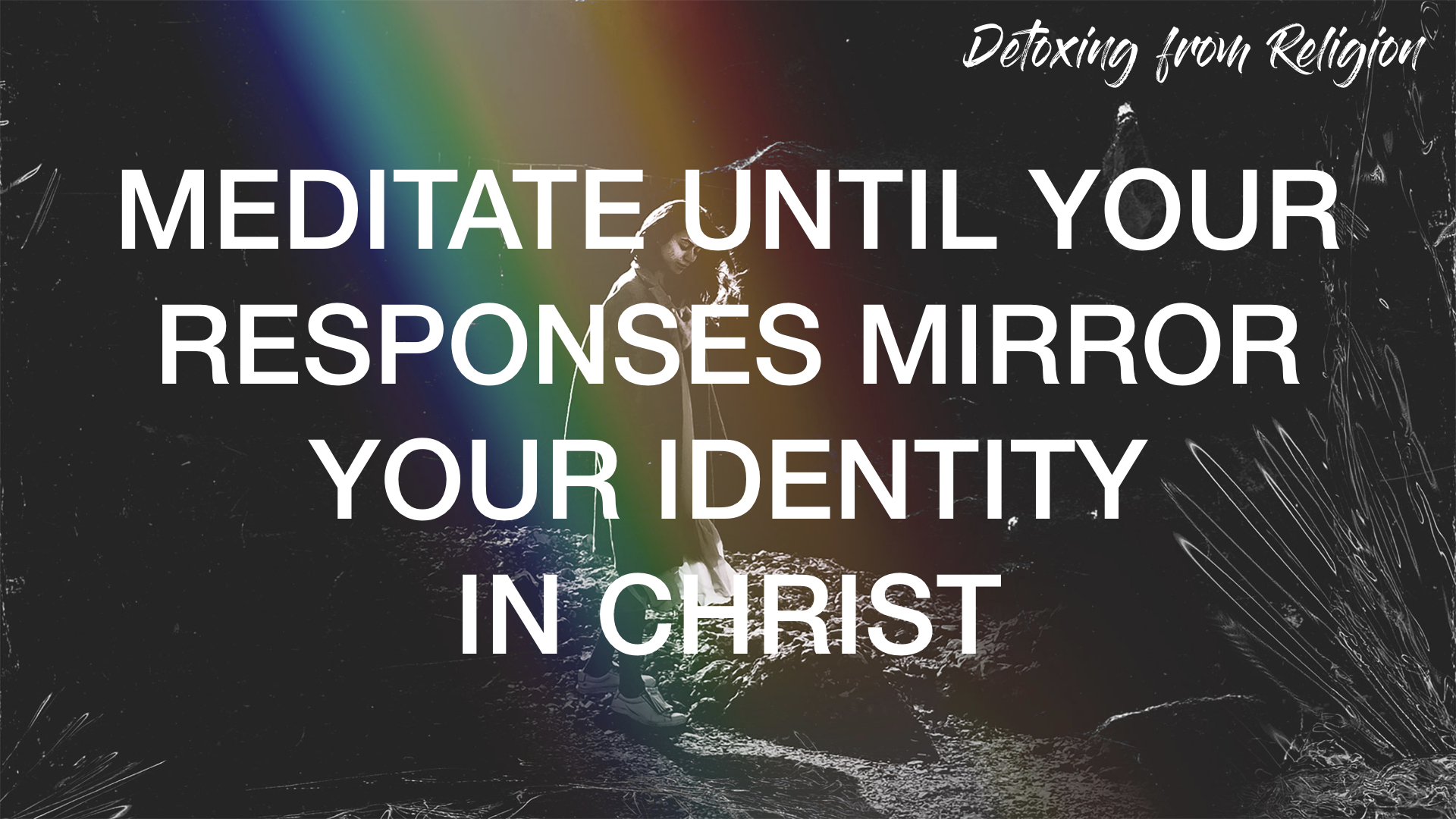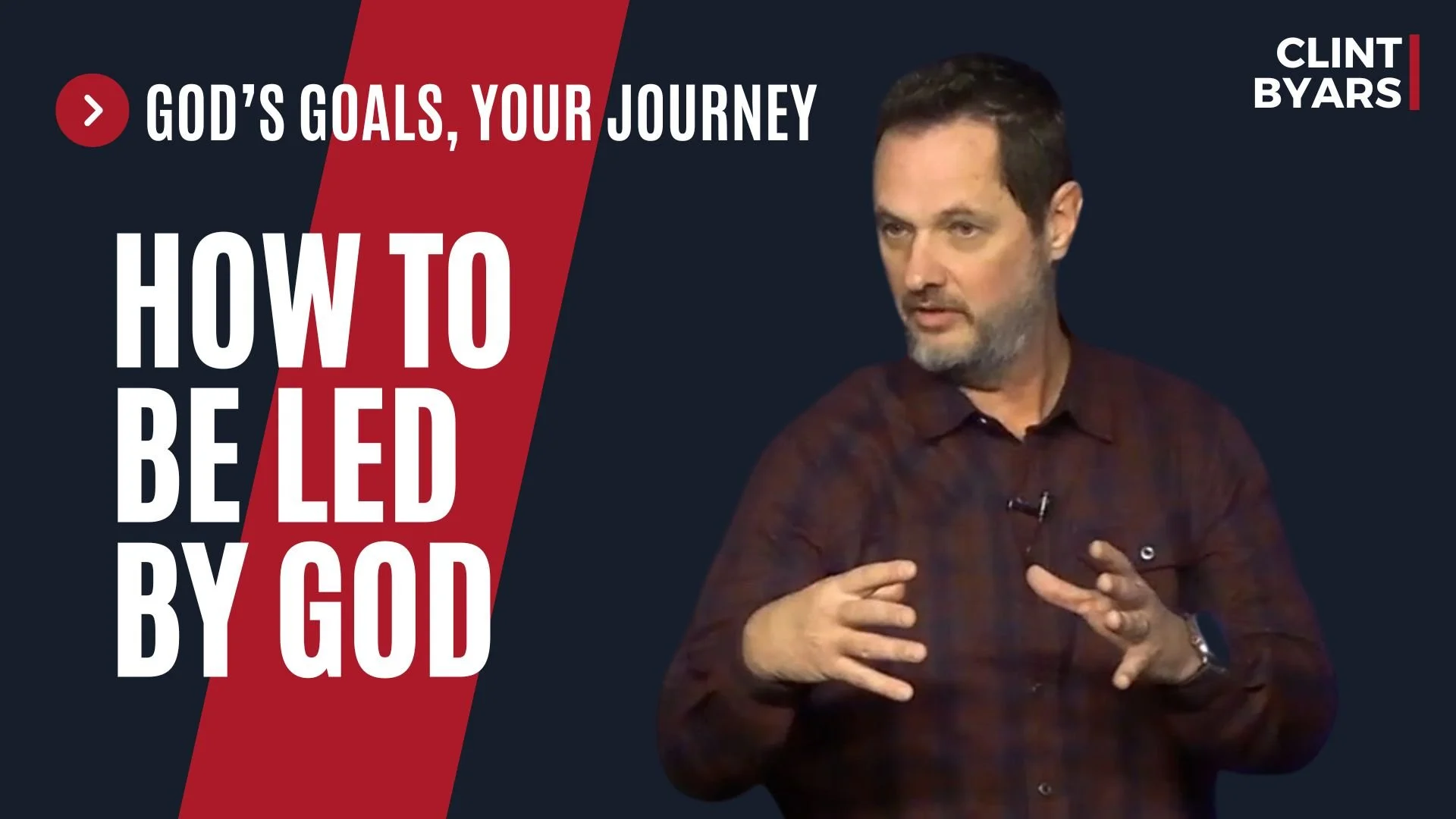Listen to AUDIO
Podcast | iTunes | Spotify
Lack is at the root of addiction. Feeling like something is missing and trying to fill that gap with toxic substances or behaviors is the engine for addiction. We see that same cycle in religion. Religion is the king of causing you to feel like something is missing. Under religion, you’re never good enough and you can never do enough to keep God happy. Most people never say it this clearly but they believe that God’s happiness is based on your behavior. This lie is the root or toxic religion.
Toxic religion is the mindset that acceptance or rejection with God is based on how good or bad you are. Religious folks would never say they’re good because of their behavior, but they might say they’re bad or unrighteous because of sinful behavior. That’s just as self-righteous and toxic as thinking you’re righteous because you kept the commandments.
The solution to breaking the addiction to toxic religion is to find a place of inner balance that’s rooted in Christ’s finished work. Your true, spiritual, eternal identity is complete already. Your standing before God doesn’t change. Only toxic religion believes otherwise, and if you believe God changes his mind about you based on your performance, it’s time to detox from religion.
Homeostasis
In the substance abuse treatment world, the goal is to help people develop homeostasis. Homeostasis is when a person has a healthy inner balance that does not react to environment or triggers with toxic behavior. The medical world realizes that freedom from addiction is a healthy inner condition of peace and control.
Once the body’s dependency on the chemical substance has run its course, the substance abuse rehabilitation world seeks to help the person to develop a healthy balance of emotions and choices inwardly. This is called developing a “constant.” A constant is a healthy state of inner existence that voluntarily and involuntarily responds in a healthy way regardless of environment or triggers.
The goal is the same for the religious addict. We know that the strength of sin is the law. Humans are always seeking justice, even within ourselves, so when we encounter God’s standard, it only serves to reveal our lack. If the person agrees with what the law says they will continue the destructive, sinful behavior. They will take on the identity of a law-breaker in their heart and continue in their sin.
But if that person can admit that they’re powerless over their sin and discover a power that’s greater than sin, they can actually transcend the lure of sin and therefore break their addiction to religion as well.
Religious addiction is rooted in an erroneous belief about God and themselves. For instance, if a Christian still believes they have a sin nature they have an excuse for their sin and will allow themselves to choose sin because they simply think it’s in their nature. But a believer that’s free from the faulty belief of a dual-nature will look to God for a strength to transcend their sinful behavior.
If you believe you’re a sinner by nature, you will continue in sin. If you believe you are righteous by nature, you will choose righteousness.
Christ As Our Constant
“Christ as our constant” sounds like a nice line from an old school hymn but it’s much more than that. It’s a deep psychological statement that touches the core of our identity. The final frontier for the Christ follower is mind-renewal, specifically in the area of who we are in Him.
Consider the following passages from Colossians 2, this is a warning from Paul about a deceitful teaching that’s going around…
8 See to it that no one takes you captive through philosophy and empty deception, which are based on human tradition and the spiritual forces of the world rather than on Christ.
He then gives the proper perspective to correct the error of this “deceitful” teaching…
9 For in Christ all the fullness of the Deity dwells in bodily form. 10 And you have been made complete in Christ, who is the head over every ruler and authority. 11 In Him you were also circumcised in the putting off of your sinful nature, with the circumcision performed by Christ and not by human hands.
To say you’re complete, lacking nothing, already righteous, holy and sanctified is blasphemy to the toxic, religious mindset. That’s because it bases “completeness” on behavior. In now way am I permitting the continuance of sinful behavior, by the way. I’m simply placing the destiny of the believer squarely where Paul does, which is in the death, burial and resurrection of Christ.
The circumcision that Christ performs in you is not on your physical body, it’s at the core of your being as a human. He cuts away the spiritual death, the spiritual cancer that has you destined for eternal separation from God and casts it aside. The truth is he took upon himself that spiritual death for you, which is what actually gives him the power to remove yours.
Staying Free
Your victory over sin and death is found in Christ’s surgery on you. He performs the ultimate procedure and cuts away the very aspect of you that was at enmity with God. He changes you, at your core, forever. Christ gives you a new constant, an eternally healthy condition of homeostasis. Our role is to allow this procedure to affect the rest of our soulish and physical being. The work of Christ within us can permeate and transform those temporary aspects of our being through the spirit he places within us at the time of this spiritual surgery ensures a new identity that can forever desire what God desires unto manifestation. But it can never work the other way around.
Never let toxic religious teaching or thinking, rob you of the work of Christ within you. You can live from this place of power and never again give into the lack and depravity in the world.
Living Forward
Here is a suggested process to take ownership of the work of Christ’s hands within you:
Pick an issue where you struggle physically, mentally or emotionally.
Admit you’re powerless on your own over the issue.
Admit that Christ in you is powerful over the issue.
Ask yourself, “does Christ, who is in me, struggle with this issue?”
Ask, “what do I need to believe about myself to be free from this issue.?”
In other words, what is it that you would believe about yourself if that issue had no power over you? For example, “I’m not afraid of anything.” Or, “I’m not the kind of person that looks at pornography.” Or, “I just never get anxious over anything.”
Identity the healthy belief, as it relates to your new identity in Christ, and own it. Put it on in your mind and emotions. See yourself as the kind of person that doesn’t have that struggle.
The truth is you’re not the kind of person that struggles with sin, you are the righteousness of God in Christ Jesus, having already been cleansed by God (sanctified) and brought to a place of holiness (purity). Who you are at your core, after the surgery of Christ within you, doesn’t have those issues. When you assume that identity, your voluntary and involuntary responses to any given environment or triggers with always consider God and apply his wisdom.
You are truly God’s masterpiece, a testament to the nature and miracle-working power of God. Own it!
For we are God’s masterpiece. He has created us anew in Christ Jesus, so we can do the good things he planned for us long ago. Oneness and Peace in Christ. Ephesians 2:10














